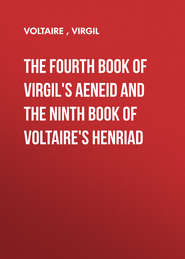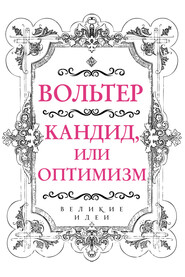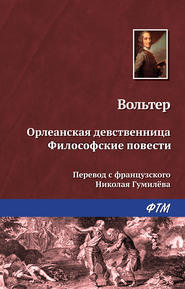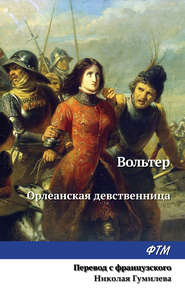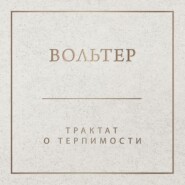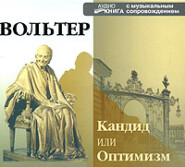По всем вопросам обращайтесь на: info@litportal.ru
(©) 2003-2024.
✖
The History of Peter the Great, Emperor of Russia
Настройки чтения
Размер шрифта
Высота строк
Поля
But his genius, which prompted him to the greatest undertakings, engaged him to quit his father's house at the age of fourteen; and he served four months[31 - This should certainly be four years; as we can hardly suppose a boy of fourteen years and a half, would be received into the military service of any country, and much less by the Dutch at that period of time, when they stood in need of able and experienced soldiers, to withstand the attacks of the French, who breathed nothing less than the utter subversion of their state.] in quality of a cadet in the citadel of Marseilles; from thence he went to Holland, where he served some time as a volunteer, and was wounded at the siege of Grave, a strong fortified town on the Meuse, which the prince of Orange, afterwards king of England, retook from Lewis XIV. in 1674. After this, led by hopes of preferment, wherever he could find it, he embarked with a German colonel, named Verstin, who had obtained a commission from Peter's father, the czar Alexis, to raise soldiers in the Netherlands, and bring them to Archangel. But, when he arrived at that port, after a most fatiguing and dangerous navigation, the czar Alexis was no more; the government was changed, and Russia in confusion. The governor of Archangel suffered Verstin, Le Fort, and his whole troop, to remain a long time, in the utmost poverty and distress, and even threatened to send them into the extremity of Siberia; upon which every man shifted for himself. Le Fort, in want of every thing, repaired to Moscow, where he waited upon the Danish resident, named De Horn, who made him his secretary: there he learned the Russian language, and some time afterwards found means to be introduced to the czar Peter; the elder brother, Iwan, not being a person for his purpose. Peter was taken with him, and immediately gave him a company of foot. Le Fort had seen very little service, he knew but little of letters, not having studied any particular art or science; but he had seen a great deal, and had a talent of making the most of what he saw. Like the czar, he owed every thing to his own genius; he understood the German and Dutch languages, which Peter was learning, as those of two nations that might be of service in his designs. Every thing conspired to make him agreeable to Peter, to whom he strictly attached himself. From being the companion of his pleasures, he became his favourite, and confirmed himself in that station by his abilities. The czar made him his confidant in the most dangerous design that a prince of that country could possibly form, namely, that of putting himself in a condition to be able one day to break the seditious and barbarous body of forces called the strelitzes. It had cost the great sultan or basha Osman his life, for attempting to disband the janissaries. Peter, young as he was, went to work in a much abler manner than Osman.
He began with forming, at his country-seat at Preobrazinski, a company of fifty of his youngest domestics; and some young gentlemen, the sons of boyards, were chosen for their officers: but, in order to teach these young noblemen a subordination, to which they were wholly unaccustomed, he made them pass through all the different military degrees, and himself set them the example, by serving first as a drum, then as a private soldier, a serjeant, and a lieutenant of the company. Nothing was ever more extraordinary, nor more useful, than this conduct. The Russians had hitherto made war in the same manner as our ancestors at the time of the feudal tenures, when the unexperienced nobles took the field at the head of their vassals, undisciplined, and ill armed: a barbarous method, sufficient indeed to act against the like armies, but of no use against regular troops.
This company, which was formed wholly by Peter himself, soon increased in numbers, and became afterwards the regiment of Preobrazinski guards. Another regiment, formed on the same plan, became in time the regiment of Semeniousky guards.
The czar had already a regiment of five thousand men that could be depended upon, trained by general Gordon, a Scotchman, and composed almost entirely of foreigners. Le Fort, who had borne arms but a short time, but whose capacity was equal to every thing, undertook to raise a regiment of twelve thousand men, which he effected: five colonels were appointed to serve under him, and he saw himself on a sudden general of this little army, which had been raised, as much to oppose the strelitzes, as the enemies of the state.
One thing worthy of being remarked,[32 - General Le Fort's MSS.] and which fully confutes the hasty error of those who pretend that France lost very few of its inhabitants by the revocation of the edict of Nantz, is, that one-third of his army, which was only called a regiment, consisted of French refugees. Le Fort disciplined his new troops, as if he had been all his lifetime a soldier.
Peter was desirous of seeing one of those images of war, the mock fights, which had lately been introduced in times of peace: a fort was erected, which was to be attacked by one part of his new troops, and defended by the other. The difference between this fight, and others of the like nature, was, that instead of a sham engagement, there was a real one, in which some of his men were slain, and a great many wounded.[33 - General Le Fort's MSS.] Le Fort, who commanded the attack, received a considerable wound. These bloody sports were intended to initiate the young troops into the service of the field; but it required much labour, and even some degree of sufferings to compass this end.
These warlike amusements did not take off the czar's attention to his naval project. As he had made Le Fort a general by land, notwithstanding his having never borne a command; he now made him admiral, though he had never had the direction of a ship, but he knew him deserving both of the one and the other. It is true, that he was an admiral without a fleet, and a general with only his regiment for an army.
By degrees the czar reformed that great abuse in the army, viz. the independence of the boyards, who, in time of war, used to bring into the field a multitude of their vassals and peasants: this was exactly the ancient government of the Franks, Huns, Goths, and Vandals, who indeed subdued the Roman empire in its state of decline, but would have been totally destroyed, had they had the warlike disciplined legions of ancient Rome to encounter, or such armies as are now brought into the field.
Admiral Le Fort was not long, however, before he had something more than an empty title. He employed some Dutchmen and Venetians in building a number of barcolongos, or kind of long barks, and also two ships of about thirty guns each, at the mouth of the Woronitz, which falls into the Tanais, or Don: these vessels were to fall down the river, and keep in awe the Crim Tartars, with whom hostilities had been renewed.
The czar was now to determine (in 1689) against which of the following powers he would declare war, whether against the Turks, the Swedes, or the Chinese. But here it will be proper to premise on what terms he then stood with China, and which was the first treaty of peace concluded by that nation.
CHAP. VII
Congress and Treaty with the Chinese.[34 - Extracted from memoirs sent from China; also from Petersburg, and from letters published in Du Halde's History of China.]
We must set out by forming a proper idea of the limits of the Chinese and Russian empires at this period. When we leave Siberia, properly so called, and also far behind us to the south, a hundred hordes of Tartars, with white and black Calmucks, and Mahometan and Pagan Monguls, we come to the 130th degree of longitude, and the 52d of latitude upon the river Amur.[35 - A famous and considerable river of the Asiatic part of the empire of Russia, which falls into the eastern ocean. It was formerly called Charan Muran, but at present the Chinese and Mauschurs give it the name of Sagalin Ula. It also bears the several appellations of Jamur, Onon, Helong, Kiang, and Skilka. It is formed by the junction of the rivers Sckilk and Argun, and is navigable to the sea.] To the northward is a great chain of mountains, that stretches as far as the Frozen Sea, beyond the polar circle. This river, which runs upwards of five hundred leagues,[36 - Busching, the famous geographer, says, that its whole length is no more than four hundred miles, so that there must be a very great error in one or other of these authors.] through Siberia and Chinese Tartary, falls, after many windings, into the sea of Kamtshatka. It is affirmed for a truth, that at its mouth, which opens with this sea, there is sometimes caught a monstrous fish, much larger than the hippopotamus of the Nile, and that the tooth thereof is the finest ivory. It is furthermore said, that this ivory was formerly an object of trade; that they used to convey it through Siberia, which is the reason why several pieces of it are still found under the ground in that country. This is the most probable account of the fossil ivory, of which we have elsewhere spoken; for it appears highly chimerical to pretend, that there were formerly elephants in Siberia.
This Amur is likewise called the Black River by the Mantechoux Tartars, and the Dragon's River by the Chinese.
It was in these countries, so long unknown, that the Russians and Chinese contested the limits of their empires.[37 - Memoirs of the jesuits Pereira and Gerbillon.] The Russians had some forts on the river Amur, about three hundred leagues from the great wall. Many hostilities had arisen between these two nations on account of these forts: at length both began to understand their interests better; the emperor Camhi preferred peace and commerce to an unprofitable war, and sent several ambassadors to Niptchou, one of those settlements. The ambassadors had ten thousand men in their retinue, including their escort: this was Asiatic pomp; but what is very remarkable, is, that there was not an example in the annals of the empire, of an embassy being sent to another potentate; and what is still more singular, that the Chinese had never concluded a treaty of peace since the foundation of their monarchy. Though twice conquered by the Tartars, who attacked and subjected them, they never made war upon any people, excepting a few hordes that were quickly subdued, or as quickly left to themselves, without any treaty. So that this nation, so renowned for morality, knew nothing of what we call the 'Law of nations;' that is to say, of those vague rules of war and peace, of the privileges of foreign ministers, of the formalities of treaties, nor of the obligations resulting from thence, nor of the disputes concerning precedency and point of honour.
But in what language were the Chinese to negotiate with the Russians, in the midst of deserts? This difficulty was removed by two jesuits, the one a Portuguese, named Pereira, the other a Frenchman, whose name was Gerbillon; they set out from Pekin with the Chinese ambassadors, and were themselves the real negotiators. They conferred in Latin with a German belonging to the Russian embassy, who understood this language. The chief of that embassy was Golowin, governor of Siberia, who displayed a greater magnificence than the Chinese themselves, and thereby gave a high idea of the Russian empire, to a people who thought themselves the only powerful nation under the sun.
The two jesuits settled the limits of both empires at the river Kerbechi, near the spot where the treaty was concluded. All the country, to the southward of this line of partition, was adjudged to the Chinese, and the north to the Russians, who only lost a small fort which was found to have been built beyond the limits: a peace was agreed to, and after some few altercations, both parties swore to observe it, in the name of the same God;[38 - 1689, Sept. 8, new style. Memoirs of China.] and in these terms, 'If any of us shall entertain the least thought of kindling anew the flames of war, we beseech the supreme Lord of all things, and who knows all hearts, to punish the traitor with sudden death.'
From this form of treaty, used alike by Chinese and Christians, we may infer two important truths: the first, that the Chinese government is neither atheistical nor idolatrous, as has been so frequently and falsely charged upon it, by contradictory imputations. Secondly, that all nations, who cultivate the gift of reason and understanding, do, in effect, acknowledge the same God, notwithstanding the particular deviations of that reason, through the want of being properly instructed.
The treaty was drawn up in Latin, and two copies were made of it. The Russian ambassadors set their names the first to the copy that remained in their possession, and the Chinese also signed theirs the first, agreeable to the custom observed by European nations, when two equal powers conclude a treaty with each other. On this occasion was observed another custom belonging to the Asiatic nations, and which was indeed, that of the earliest ages. The treaty was engraven on two large marble pillars, erected on the spot, to determine the boundaries of the two empires.
Three years after this, the czar sent Isbrand Ides, a Dane, his ambassador to China; and the commerce he then established between the two nations, continued with advantage to each, till the rupture between them in the year 1722; but since this short interruption, it has been revived with redoubled vigour.
CHAP. VIII
Expedition to the Palus Mæotis; conquest of Azoph. – The czar sends young gentlemen into foreign countries for improvement.
It was not so easy to have peace with the Turks, and indeed, the time seemed come for the Russians to rise upon their ruins. The republic of Venice, that had long groaned under their yoke, began now to rouse itself. The Doge Morosini, the same who had surrendered Candy to the Turks, afterwards took from them the Peloponnesus, which conquest got him the title of Peloponnesian, an honour which revived the memory of the Roman republic. Leopold, emperor of Germany, had proved successful against the Ottoman power in Hungary; and the Poles made shift to check the incursions of the Crim Tartars.
Peter took advantage of these circumstances, to discipline his troops, and to procure himself the empire of the Black Sea. General Gordon marched along the Tanais, towards Azoph, with his numerous regiment of five thousand men, followed by general Le Fort, with his regiment of twelve thousand; by a body of Strelitzes, under the command of Sheremeto and Schein, natives of Prussia; by a body of Cossacks, and by a large train of artillery: in a word, every thing was ready for this expedition.
1694.] This grand army began its march under the command of marshal Sheremeto, or Scheremetoff, in the beginning of the summer of 1695, to attack the town of Azoph, at the mouth of the Tanais, and at the extremity of the Palus Mæotis, now called the Zaback Sea. The czar himself was with the army, but only in quality of a volunteer, being determined to learn, some time before he took upon him to command. During their march, they stormed two forts which the Turks had built on the banks of the river.
This expedition was attended with some considerable difficulties. The place was well fortified, and defended by a numerous garrison. A number of barcolongos, resembling the Turkish saicks, and built by Venetians, with two small Dutch ships of war, that were to sail out of the Woronitz, could not be got ready soon enough to enter the sea of Azoph. All beginnings meet with obstacles. The Russians had never yet made a regular siege; and the first attempt did not meet with all the success that could be desired.
One Jacob, a native of Dantzic, had the direction of the artillery, under the command of general Schein; for as yet they had none but foreign officers belonging to the train, and none but foreign engineers and pilots. This Jacob had been condemned to the bastinade, or knout, by Schein, the Russian general. At that time rigorous discipline was thought to be the only method of strengthening command; and the Russians quietly submitted to it, notwithstanding their natural bent to sedition; and after the punishment, did their duty as usual. But the Dane thought in a different manner, and resolved to be revenged for the treatment he had received, and thereupon nailed up the cannon, deserted to the Turks, turned Mahometan, and defended Azoph, with great success, against his former masters. This instance shews, that the lenity which is now practised in Russia, is much preferable to the former severities; and is better calculated to retain those in their duty, who by a good education, have a proper sense of honour. It was absolutely necessary at that time, to use the utmost rigour towards the common people; but since their manners have been changed, the empress Elizabeth[39 - The present reigning empress Catharine seems even to exceed her aunt in lenity, which together with the superior qualifications of this princess, affords her people the most happy presage of a glorious reign; and it is not without reason, that the most sensible amongst them flatter themselves with the hope, that under this august princess, the Russian empire will arrive at its highest pinnacle of glory.] has completed, by clemency, the work her father begun, by the authority of the laws. This lenity has even been carried, by this princess, to a degree unexampled, in the history of any nation. She has promised, that, during her reign, no person shall be punished with death, and she has kept her word. She is the first sovereign who ever shewed so much regard for the lives of men. By an institution, equally prudent and humane, malefactors are now condemned to serve in the mines, and other public works: by which means their very punishments prove of service to the state. In other countries, they know only how to put a criminal to death, with all the apparatus of execution, without being able to prevent the perpetration of crimes. The apprehension of death makes, perhaps, less impression on those miscreants, who are, for the most part, bred up in idleness, than the fear of punishment and hard labour, renewed every day.
To return to the siege of Azoph, which place was now defended by the same person who had before directed the attacks against it; the Russians, in vain, attempted to take it by storm; and after losing a great number of men, were obliged to raise the siege.
Perseverance in his undertakings, was the distinguishing character of Peter the Great. In the spring of 1696, he brought a still more considerable army before Azoph. About this time died czar John, his brother, who though he had not, while living, been the least curb to Peter's authority, having enjoyed only the bare title of czar, yet he had been some restraint upon him in regard to appearances. The money which had been appropriated to the support of John's dignity and household, were now applied to the maintenance of the army. This proved no small help to a government, whose revenues were not near so great as they are at present. Peter wrote to the emperor Leopold, to the states-general, and to the elector of Brandenburg, to obtain engineers, gunners, and seamen. He likewise took some Calmucks into his pay, whose light horse are very useful against the Crim Tartars.
The most agreeable of the czar's successes, was that of his little fleet, which was at length completed, and well commanded. It defeated the Turkish saicks, sent from Constantinople, and took some of them. The siege was carried on regularly by trenches, but not altogether in our method; the trenches being three times deeper than ours, with parapets as high as ramparts. At length the garrison surrendered, the 28th of July, 1696. N. S. without being allowed the honours of war, or to carry out with them either arms or ammunition: they were likewise obliged to deliver up the renegade, Jacob, to the conquerors.
The czar immediately set about fortifying Azoph, built strong forts to protect it, and made a harbour capable of holding large vessels, with a design to make himself master of the Streights of Caffa, or the Cimmerian Bosphorus, which commands the entrance into the Pontus Euxinus, or Black Sea; places famous in ancient times, by the naval armaments of Mithridates. He left thirty-two armed saicks before Azoph,[40 - Le Fort's Memoirs.] and made all the necessary preparations for fitting out a fleet against the Turks, to consist of nine ships of sixty guns, and of forty-one, from thirty to fifty. He obliged his principal nobles, and the richer merchants, to contribute towards this armament; and thinking that the estates of the clergy ought to help towards the common cause, he obliged the patriarch, the bishops, and principal clergy, to pay down a sum of ready money to forward this expedition, in honour of their country, and the advantage of the Christian faith. The Cossacks were employed in building a number of those light boats in use amongst them, and which were excellent for the purpose of cruising on the coast of Crim Tartary. The Ottoman empire was alarmed at this powerful armament; the first that had ever been attempted on the Palus Mæotis. The czar's scheme was to drive the Turks and the Tartars for ever out of the Taurica Chersonesus, and afterwards to establish a free and easy commerce with Persia through Georgia. This is the very trade which the Greeks formerly carried on to Colchos, and to this peninsula of Crim Tartary, which Peter now seemed on the point of conquering.
Having subdued the Turks and the Tartars, he was willing to accustom his people to splendid shows as well as to military labour. He made his army to enter into Moscow, under triumphal arches, in the midst of superb fire-works, and every thing that could add to the lustre of the festival. The soldiers who had fought on board the Venetian saicks against the Turks, and who were a distinct corps of themselves, marched first. Marshal Sheremeto, the generals Gordon and Schein, admiral Le Fort, and the other general officers, all took the precedence of their monarch in this procession, who declared he had no rank in the army, being desirous to convince the nobility, by his example, that the only way to acquire military preferment, was to deserve it.[41 - It is in consequence of this glorious and equitable distinction, that at this day we find nobility gives no precedence in the court of Russia; nor can the son of a prince appear there in any other rank, than that which his situation in the army gives him; while a private citizen, who by his merit has raised himself above his condition, receives all the honours due to his post; or more properly speaking, to the merit which obtained him that post. A reputation of this kind would, methinks, be attended with great advantages, both in England and France, as it would be a means to raise in the youth of all ranks, a virtuous and noble emulation.]
This triumphal entry seemed somewhat a-kin to those of the ancient Romans, in which the conquerors were wont to expose the prisoners they had taken, to public view, and sometimes put them to death: in like manner, the slaves, taken in this expedition, follow the army; and the deserter Jacob, who had betrayed them, was drawn in an open cart, in which was a gibbet, to which his body was fastened after he had been broke upon the wheel.
On this occasion was struck the first medal in Russia, with this remarkable legend, in the language of the country. 'Peter the First, august emperor of Muscovy.' On the reverse was the city of Azoph, with these words; 'Victorious by Fire and Water.'
Peter felt a sensible concern in the midst of all these successes, that his ships and gallies in the sea of Azoph, had been built entirely by the hands of foreigners; and wished as earnestly to have a harbour in the Baltic Sea, as upon the Pontus Euxinus.
Accordingly, in the month of March 1697, he sent threescore young Russians of Le Fort's regiment, into Italy, most of them to Venice, and the rest to Leghorn, to instruct themselves in the naval art, and the manner of constructing gallies. He likewise sent forty others into Holland,[42 - General Le Fort's MSS.] to learn the method of building and working large ships: and others likewise into Germany, to serve in the land forces, and instruct themselves in the military discipline of that nation. At length he took a resolution to absent himself for a few years from his own dominions, in order to learn how to govern them the better. He had an irresistible inclination to improve himself by his own observation and practice in the knowledge of naval affairs, and of the several arts which he was so desirous to establish in his own country. He proposed to travel incognito through Denmark, Brandenburg, Holland, Vienna, Venice, and Rome. France and Spain were the only countries he did not take into his plan; Spain, because the arts he was in quest of, were too much neglected there; and France, because in that kingdom they reigned with too much ostentation, and that the parade and state of Lewis XIV. which had disgusted so many crowned heads, ill agreed with the private manner in which he proposed to travel. Moreover, he was in alliance with most of the powers, whose dominions he intended to visit, except those of France and Rome. He likewise remembered, with some degree of resentment, the little respect shewn by Lewis XIV. to his embassy in 1687, which had proved more famous than successful; and lastly he already began to espouse the cause of Augustus, elector of Saxony, with whom the prince of Conti had lately entered into a competition for the crown of Poland.
CHAP. IX
Travels of Peter the Great.
1697.
Having thus determined to visit the several countries and courts above-mentioned in a private character, he put himself into the retinue of three ambassadors, in the same manner as he had before mingled in the train of his generals at his triumphant entry into Moscow.
[43 - The Petersburg Memoirs, and Memoirs of Le Fort.] The three ambassadors were, general Le Fort, the boyard Alexis Gollowin, commissary-general of war, and governor of Siberia, the same who signed the perpetual treaty of peace with the plenipotentiaries of China, on the frontiers of that empire; and Wonitzin, diak, or secretary of state, who had been long employed in foreign courts. Four principal secretaries, twelve gentlemen, two pages for each ambassador, a company of fifty guards, with their officers, all of the regiment of Preobrazinski, composed the chief retinue of this embassy, which consisted in the whole of two hundred persons; and the czar, reserving to himself only one valet de chambre, a servant in livery, and a dwarf, mingled with the crowd. It was a thing unparalleled in history, for a king of five-and-twenty years of age, to quit his dominions, in order to learn the art of governing. His victory over the Turks and Tartars, the splendour of his triumphant entry into Moscow, the number of foreign troops attached to his service, the death of his brother John, his co-partner in the empire, and the confinement of the princess Sophia to a cloister, and above all the universal respect shewn to his person, seemed to assure him the tranquillity of his kingdom during his absence. He intrusted the regency in the hands of the boyard Strechnef, and the knez or prince Romadonowski, who were to deliberate with the rest of the boyards in cases of importance.
Two troops raised by general Gordon remained behind in Moscow, to keep every thing quiet in that capital. Those strelitzes, who were thought likely to create a disturbance, were distributed in the frontiers of Crim Tartary, to preserve the conquest of Azoph, and to check the incursions of the Tartars. Having provided against every incident, he gave a free scope to his passion and desire of improvement.
As this journey proved the cause, or at least the pretext, of the bloody war, which so long traversed, but in the end promoted, all the designs of the czar; which drove Augustus, king of Poland, from the throne; placed that crown on the head of Stanislaus, and then stript him of it; which made Charles XII. king of Sweden, the first of conquerors for nine years, and the most unfortunate of kings for nine more; it is necessary, in order to enter into a detail of these events, to take a view of the state of Europe at that time.
Sultan Mustapha II. sat at that time on the Ottoman throne; the weakness of whose administration would not permit him to make any great efforts, either against Leopold, emperor of Germany, whose arms were successful in Hungary, nor against the czar, who had lately taken Azoph from him, and threatened to make himself master of the Pontus Euxinus; nor even against the Venetians, who had made themselves masters of all the Peloponnesus.
John Sobieski, king of Poland, for ever famous by the victory of Chocksim, and the deliverance of Vienna, died the 17th of June, 1696, and the possession of that crown was in dispute between Augustus, elector of Saxony, who obtained it, and Armond, prince of Conti, who had only the honour of being elected.
1697.] Sweden had lately lost, but without regret, Charles XI. her sovereign, who was the first king who had ever been really absolute in that country, and who was the father of a prince still more so, and with whom all despotic power ceased. He left the crown to his son Charles XII. a youth of only fifteen years of age. This was in all appearance a conjuncture the most favourable for the czar's design; he had it in his power to extend his dominions on the Gulf of Finland, and on the side of Livonia. But he did not think it enough to harass the Turks on the Black Sea; the settlements on the Palus Mæotis, and the borders of the Caspian Sea, were not sufficient to answer his schemes of navigation, commerce, and power. Besides, glory, which is the darling object of every reformer, was to be found neither in Persia, nor in Turkey, but in our parts of Europe, where great talents are rendered immortal. In a word, Peter did not aim at introducing either the Persian or Turkish manners among his subjects.
Germany, then at war both with the Turks and with the French, and united with Spain, England, and Holland, against the single power of Lewis XIV. was on the point of concluding peace, and the plenipotentiaries were already met at the castle of Ryswick, in the neighbourhood of the Hague.
It was during this situation of affairs, that Peter and his ambassador began their journey in the month of April, 1697, by the way of Great Novogorod: from thence they travelled through Esthonia and Livonia, provinces formerly disputed by the Russians, Swedes, and Poles, and which the Swedes at last acquired by superiority of arms.
The fertility of Livonia, and the situation of its capital, Riga, were temptations to the czar, to possess himself of that country. He expressed a curiosity to see the fortifications of the citadel. But count D'Alberg, governor of Riga, taking umbrage at this request, refused him the satisfaction he desired, and affected to treat the embassy with contempt. This behaviour did not at all contribute to cool the inclination the czar might have, to make himself one day master of those provinces.
From Livonia they proceeded to Brandenburg-Prussia, part of which had been inhabited by the ancient Vandals; Polish Prussia had been included in European Sarmatia. Brandenburg-Prussia was a poor country and badly peopled; but its elector, who afterwards took the name of king, displayed a magnificence on this occasion, equally new and destructive to his dominions. He piqued himself upon receiving this embassy in his city of Konigsberg, with all the pomp of royalty. The most sumptuous presents were made on both sides. The contrast between the French dress which the court of Berlin affected, and the long Asiatic robes of the Russians, with their caps buttoned up with pearls and diamonds, and their scimitars hanging at their belts, produced a singular effect. The czar was dressed after the German fashion. The prince of Georgia, who accompanied him, was clad in a Persian habit, which displayed a different magnificence. This is the same who was taken prisoner afterwards at the battle of Narva, and died in Sweden.







